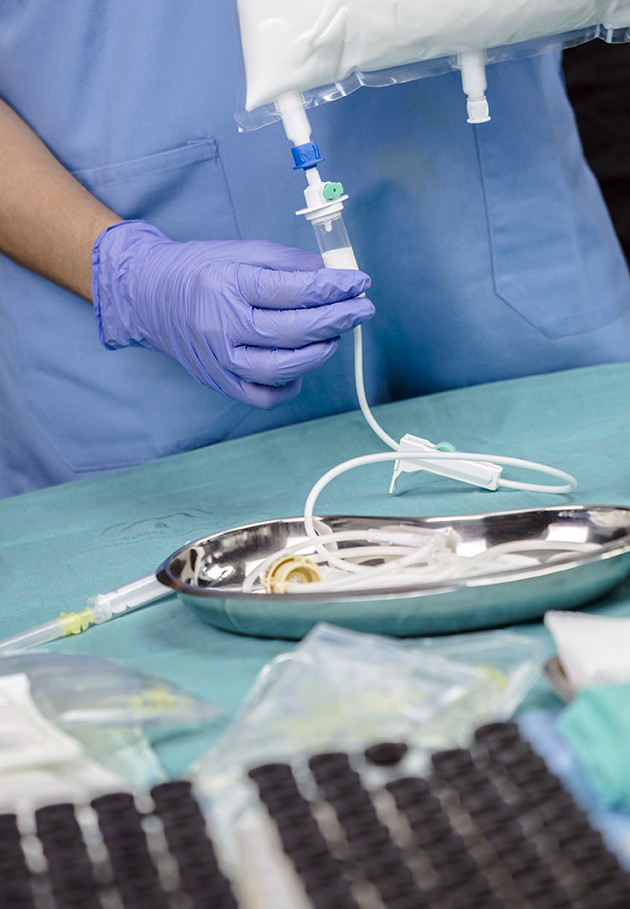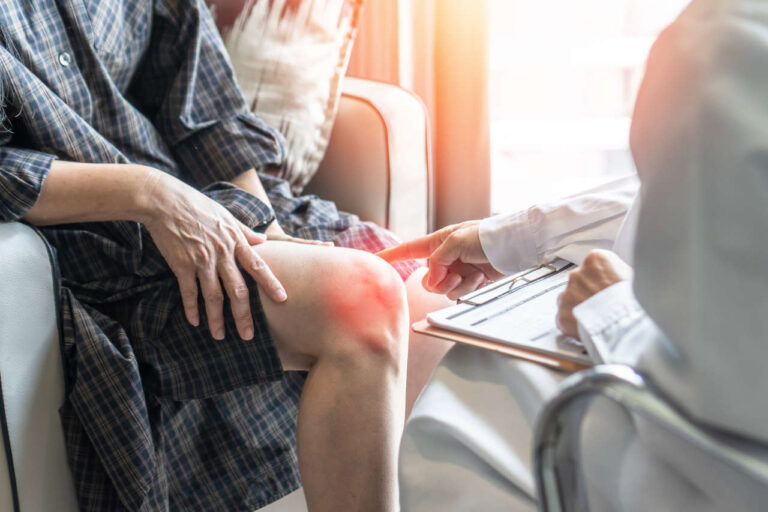
Crohn’s disease was formally identified in 1932 by its namesake, Dr. Burrill B. Crohn, and his colleagues. In a seminal paper titled “Regional Ileitis: A Pathologic and Clinical Entity,” the authors presented a detailed description of an inflammatory bowel disease (IBD) that is known today as Crohn’s disease.
Crohn’s disease affects areas of the gastrointestinal tract spanning from the mouth to the anus, causing pain, discomfort, and malnutrition. In this article, we will provide an overview of Crohn’s disease, including how to identify the disease, how to get tested, and how to get treated so you or a loved one can get on track for healthier living.
Obțineți asistență pentru coplată IVIG
Asistență financiară IVIGWhat Are the Symptoms of Crohn’s Disease?
Symptoms of Crohn’s disease go through cycles of flare-ups and remission. Those with mild symptoms may experience the following when the disease is active:
- Diaree
- Febră
- Stomach cramps
- Oboseală
- Lipsa poftei de mâncare
- Pierdere în greutate
- Mouth sores
- Bloody stool
- Urgent bowel movements
- Pain or drainage from a sore near the anus
In severe cases of Crohn’s disease, additional symptoms are present, including inflammation of skin, eyes, joints, liver, and bile ducts. Furthermore, complications may arise over time as a result of frequent flare-ups, which include bowel obstruction, ulcers, fistulas, anal fissures, malnutrition, and colon cancer. Malnutrition resulting from the body’s inability to absorb nutrients properly can also lead to other issues like arthritis, anemia, skin disorders, and gallbladder or liver disease.
What Are the Causes and Who’s at Risk?
Scientists and doctors have not yet identified the exact cause of Crohn’s. Doctors believe certain factors may increase a person’s risk of developing the disease. These primary factors include immune system issues, family history, genetics, and environmental factors. Although anyone of any age can be diagnosed with Crohn’s disease, it’s found more commonly in these populations:
- People under the age of 30
- Those with close relatives who have the disease
- People of Eastern European descent, including European Jews, and increasingly found within African-Americans
- Developed countries, specifically in highly industrial, urban communities
According to some emerging research, a diet high in ultra-processed foods can be linked to a higher incidence of Crohn’s disease. Ultra-processed foods include packaged snacks, frozen meals, and processed meats. Therefore, if you want to lower your risk of developing Crohn’s disease, it is best to avoid these foods.
Other factors that may contribute to inflammatory bowel diseases such as Crohn’s disease include smoking and taking antibiotics consistently.
Diagnosing Crohn’s Disease
Testing for Crohn’s disease usually occurs after other possible diagnoses have been ruled out. Doctors use a variety of methods to test for the condition, including blood tests to identify vitamin deficiencies, abnormal protein count, and antibody levels. Doctors also conduct various procedures (colonoscopy, CT scan, MRI, capsule endoscopy, and balloon-assisted enteroscopy) to locate affected areas within the GI tract.
Poate ajuta IVIG?
Informații gratuite despre tratamentul IVIGManaging Crohn’s Disease Symptoms
Although there is no cure for Crohn’s disease, there are ways to manage symptoms and prevent or limit flare-ups. Treatment for Crohn’s disease is designed to help manage symptoms and limit damage from inflammation. These can include a combination of medications, supplements, therapies, and possibly surgery.

Common medications for Crohn’s disease include anti-inflammatory drugs, immune system suppressors, antibiotics, antidiarrheals, and pain relievers. Because the disease impacts the body’s ability to absorb nutrients from normal eating, multivitamins are also often recommended to prevent conditions associated with vitamin deficiencies. Nutrition therapy is also sometimes recommended to relieve strain on the bowel. These therapies include enteral nutrition (the use of feeding tubes) and parenteral nutrition (nutrients injected into veins).
In January 2025, the FDA approved mirikizumab-mrkz (Omvoh) for the treatment of Crohn’s disease in adults. This drug can reduce inflammation in the digestive tract. It works by targeting interleukin-23p19, which is a contributor to inflammation in the intestines.
In addition to standard treatments, certain supplements can help you manage the symptoms of Crohn’s disease. For example, curcumin, which is a compound found in turmeric, has anti-inflammatory properties that can help you control your symptoms. In addition, curcumin may enhance the efficacy of standard treatments.
Inflammation caused by Crohn’s disease can lead to fistulas, ulcers, fissures, and blockages. To treat these complications, surgery is sometimes required to drain abscesses or to remove damaged sections of the digestive tract.
Flare-ups can happen any time. However, certain lifestyle changes can help minimize the frequency and severity these occurrences. You can start with your diet. Eat a low-fat, low-fiber diet and avoid spicy foods, alcohol, and caffeine. Drink plenty of water and eat small meals throughout the day. Avoid smoking, as it can increase your risk of developing Crohn’s disease and can make symptoms worse. Do your best to avoid or manage stress with relaxation techniques and exercise.
Dealing with Crohn’s disease can be difficult both mentally and physically. It is best to build a robust support system that includes family, friends, and support groups. This can reduce stress and make it easier for you to cope with this condition. Support groups such as the Crohn’s & Colitis Foundation provide numerous resources and help you connect with other individuals facing similar challenges.
Concluzie
If you or a loved one suspects you may have Crohn’s disease, keep track of your symptoms and talk to your doctor about seeing a gastroenterologist. Identifying the disease early and managing it properly through medication and lifestyle changes can help you take back control over your life.













